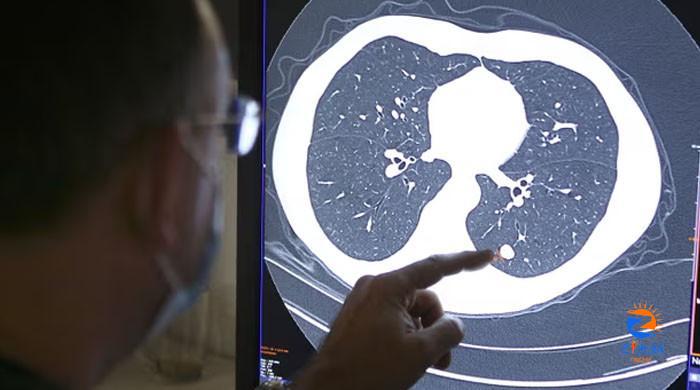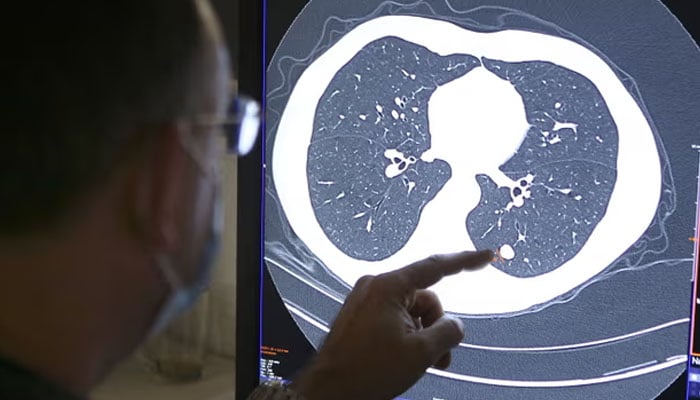
[ad_1]
Thousands of individuals are losing their lives to cancer needlessly since the United Kingdom’s (UK) survival rate is lower than that of comparable nations, as per a scathing statement and report.
According to a report by Cancer Research UK, significant progress has been achieved in treating the illness over the previous 50 years; yet, because of treatment delays and delayed diagnosis, progress is “at risk of stalling.”
In comparison to Australia, Canada, Norway, Denmark, Ireland, and New Zealand, the UK has the lowest survival rates in five out of seven cancer categories, according to league tables compiled by foreign researchers and provided by the charity.
If governments implemented a radical new strategy to address the illness, almost 20,000 lives might be prevented annually in the UK by 2040, according to Cancer Research UK. It further stated that a national cancer council answerable to the prime minister need to be established.
In its study, the charity urged further action to be taken in order to expedite diagnosis, treat patients promptly, and hire an additional 16,000 full-time cancer professional members by 2029.
By 2028, the NHS aims to detect 75% of cancer cases at stage 1 or 2, but the charity has cautioned that this goal will not be met.
According to the paper, cancer is a “fixable problem.” While Denmark has “raced ahead, with consistent funding and long-term cancer strategies,” the UK and Denmark were nearly equal in their improvements in cancer outcomes thirty years ago.
It said: “Across the UK, cancer waiting times are being consistently missed, and some have not been met for over a decade. While they wait for diagnosis and treatment, patients and their families face an anxious and worrying time.”
“Investment in prevention, NHS staff, equipment and facilities is needed to turn the tide.”
The report said the “inequalities in who gets and dies from cancer are stark, with more than 33,000 cases each year across the UK attributable to deprivation”.
There is still more work to be done to increase survival rates, according to Prof Sir Mike Richards, a former national cancer director of the Department of Health who currently provides advice to NHS England.
“The late-stage problem is a big one,” he said. “Nearly half of all patients with cancer are diagnosed at stage 3 and 4. They have poor prognosis compared to those in stage 1 and 2.”
“We are not currently on target for the government’s target of 75% being diagnosed (at early stages) by 2028. There’s a lot we can do: we can improve our screening programmes, we can improve our diagnosis of symptomatic patients and we can reduce inequalities in treatment.”
Richards stated that the NHS needs “more CT scanners, more radiographers, more radiologists, and more thoracic surgeons” in relation to lung cancer. He said that although the Covid epidemic affected cancer targets generally, they had already begun to decline.
Cancer Research UK stated in its study that money was required to close a £1 billion research deficit over the following ten years. It stated that “despite having among the highest cost of disease burden,” the government funds the least amount of research on cancer of any major illness.
According to the research, smoking and bad lifestyle choices account for thousands of cancer cases in the UK, where four out of ten instances are avoidable.
According to Cancer Research UK, authorities ought to have raised the legal age of tobacco product sales and put into effect the 2022 law restricting food-related TV and internet advertisements within a year of the next general election.
Cancer Research UK’s chief executive, Michelle Mitchell, said: “Cancer is the defining health issue of our time. Avoiding thousands of cancer deaths is possible but it will take leadership, political will, investment and reform.”
“The impact of cancer is immense. We estimate that half a million people – friends, colleagues and loved ones – will be diagnosed with the disease every year by 2040. Their lives are at stake if we don’t act now.”
[ad_2]
